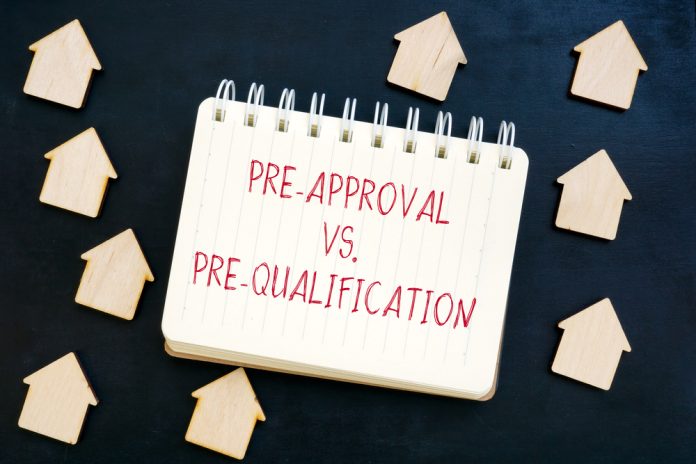Let’s face it—buying a home is a big deal, and navigating the mortgage process can feel like trying to decode a foreign language. You’ll hear terms like “pre-qualification” and “pre-approval” thrown around a lot, and while they sound similar, they serve very different purposes. Knowing the difference between the two can help you avoid wasted time, prevent disappointment, and give you a stronger position in a competitive market.
If you’re just getting started on your homebuying journey or even if you’ve already spoken to a lender, it’s crucial to understand exactly what these two terms mean and when to use each one. In this article, we’ll break it down in plain English, walk through real-life examples, and explain why being strategic about your mortgage prep can make all the difference.
What is a Pre-Qualification Letter?

A pre-qualification letter is often the first step in the home financing process. It’s a general estimate from a lender based on information you provide—typically your income, assets, debts, and credit situation. This process is usually quick, informal, and doesn’t require documentation or a credit check. Think of it as a ballpark figure of how much home you might be able to afford.
The key word here is “might.” A pre-qualification isn’t a guarantee of financing, nor is it something sellers will take too seriously when you make an offer. It’s more of a helpful tool for you, the buyer, to understand your buying power and start browsing homes that are realistically within your range. It can also be a great starting point for conversations with your Realtor about what’s feasible in your local market.
Let’s look at a real-world example: imagine you’re just starting your home search. You call a lender, give them a rough overview of your finances, and they tell you that—based on what you’ve told them—you could probably afford a home up to $400,000. That information is helpful for browsing Zillow or going to open houses, but it’s not a commitment from the lender. No credit has been pulled, and no documents have been reviewed.
Pre-qualification is great when you’re just getting your feet wet and want a sense of what you can afford. But if you’re serious about making offers and getting ahead of the competition, you’ll need something stronger.
What is a Pre-Approval Letter?
A pre-approval letter is a much more official step in the mortgage process. This is where a lender actually verifies your financial information, runs a credit check, and often asks for documentation such as W-2s, pay stubs, and bank statements. Based on that deeper analysis, the lender provides a written letter stating how much they are willing to lend you, subject to final underwriting and property appraisal.
Unlike a pre-qualification, a pre-approval shows sellers that you’re a serious buyer. It’s basically the lender saying, “We’ve reviewed this person’s financials, and we’re confident in their ability to secure financing.” This gives you a big advantage in competitive markets where multiple offers are common. Sellers are more likely to accept an offer that comes with a pre-approval letter because it reduces the risk of the deal falling through due to financing issues.
Here’s a practical example: you’re ready to buy and have found a home you love. Your Realtor helps you put together an offer, and you include a pre-approval letter from your lender stating you’re approved for up to $425,000. Another buyer submits an offer as well—but they only have a pre-qualification letter. The seller is naturally going to feel more confident with your offer because your financing has already been vetted.
Keep in mind, though, that pre-approval isn’t a final loan approval. It’s conditional and still subject to final underwriting, appraisal, and property conditions. However, it’s a major step forward in proving your financial strength and seriousness as a buyer.
Key Differences Between Pre-Qualification and Pre-Approval

Although they’re often confused, the differences between pre-qualification and pre-approval are significant. The most important distinction lies in the level of verification and the confidence they provide to sellers and agents involved in the transaction.
Pre-qualification is based on self-reported information and doesn’t require any supporting documentation or credit check. It’s quick, non-binding, and best used at the early stage of your home search. It helps you and your Realtor get a sense of your price range, but that’s about where its usefulness ends when it comes time to make an offer.
Pre-approval, on the other hand, involves verified financial information and a credit check. It gives both you and the seller a much clearer picture of what you can afford. It shows that you’ve taken the time to go through a lender’s vetting process and that you’re prepared to move forward with financing if your offer is accepted.
In the simplest terms, pre-qualification is like getting an estimate from a mechanic over the phone. Pre-approval is like having the mechanic inspect the car in person. One is helpful, but the other gives you real confidence moving forward.
Read More: What Is an Earnest Money Deposit? A First-Time Homebuyer’s Guide
When Should You Get Each?
The best approach for most buyers is to start with a pre-qualification. It’s fast, easy, and gives you a rough idea of what you can afford. This can help you narrow down your home search and avoid falling in love with properties outside your price range.
Once you’re ready to start touring homes seriously—or better yet, when you’re ready to make an offer—that’s the time to get pre-approved. Having that letter in hand can make a huge difference in how sellers view your offer, especially in a hot market. Some listing agents won’t even accept an offer without one.
If you’re on a tight timeline or you know you’ll be shopping in a competitive area, go ahead and skip straight to pre-approval. It never hurts to be prepared, and getting your financial ducks in a row early can help you act fast when you find the right home.
And remember: pre-approvals typically expire after 60 to 90 days, so make sure to check with your lender and update your documentation if your home search stretches longer than that.
Final Thoughts

Understanding the difference between a pre-qualification and a pre-approval letter can make your homebuying journey a whole lot smoother. Each has its place, but when it’s time to make a serious move, pre-approval is the key to showing sellers you’re the real deal.
If you’re still not sure which one is right for you, or if you have questions specific to your financial situation, don’t hesitate to talk to a trusted Realtor or lender. They’ll help guide you through the process and make sure you’re in the strongest position possible when you’re ready to buy.

